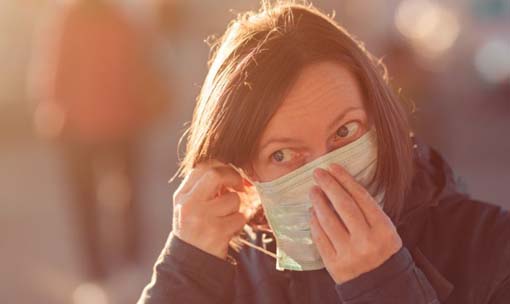- February 27, 2020
- Posted by: norgay
- Category: International

There has been much confusion surrounding how employers should handle the outbreak of coronavirus.
Originating in China’s Hubei Province, COVID-19 has now infected 75,748 people globally, according to the World Health Organisation’s February 20 situation report.
So what should employers do?
When workers should be quarantined
The Fair Work Ombudsman has a number of recommendations for quarantining of workers and leave arrangements during the outbreak. These include:
- Self-isolation of any Australian who has been in Wuhan or Hubei Province within the last 14 days, or in contact with someone who has been in those areas.
- Paid sick leave for any employee affected by COVID-19.
- Paid carer’s leave for any employee forced to look after a family member with coronavirus.
- Various types of paid or unpaid leave arrangements for any employee stranded in quarantine in China, or elsewhere around the world.
- Normal consideration of leave requests from employees concerned about the threat of coronavirus in the workplace.
- Normal pay or suitable award-provision payment for any employee directed to be home quarantined by the employer.
Ensuring full legal compliance
According to employment law firm Coleman Greig, employers must consider several factors when dealing with workers affected by the coronavirus threat.
This is to ensure full workplace compliance with the law and prevent any form of discrimination against employees, leading to possible adverse action claims.
These considerations apply to employees travelling back from Wuhan, Hubei Province or elsewhere in China, as well as those quarantined on Christmas Island or in various global isolation points such as cruise ships.
Currently, the Department of Health says those returning from China – outside Hubei Province – do not need to self-isolate unless showing visible signs of the virus.
However, various businesses, government organisations, schools and care facilities are asking all individuals returning from China to self-isolate at home for 14 days. This has various legal implications.
Say an employee returns from China – outside Hubei Province – with no apparent coronavirus symptoms, wanting to resume work as normal. The employer directs that person to stay home for 14 days, then present a medical clearance certificate before returning to work.
The worker should not be required to use any accrued annual or personal leave in this instance, the law firm points out. Employers should treat this as paid special leave instead. They should also make it clear that the work exclusion is for precautionary rather than discriminatory reasons.
Preventing coronavirus spread
Rigorous cleanliness and sanitisation practices are needed in the workplace to prevent spread of the disease. These include:
- Clean hands regularly with soap and water or alcohol-based hand sanitisers.
- Cover nose and mouth with tissue or elbow when coughing or sneezing.
- Avoid contact with anyone who has flu-like symptoms.
- Avoid contact with live wild or farm animals if applicable.
Identified symptoms of COVID-19 include fever, flu-like symptoms and breathing difficulties. While there is currently no vaccine, medical experts say most symptoms can be treated with supportive medical care.
Any employee with suspected coronavirus must be referred immediately to a doctor and isolated from others.
Stay calm, and avoid panic in your organisation
Be proactive to minimise fear and misinformation in your business. The World Health Organisation’s myth-busting fact sheet shoots down some common misconceptions about coronavirus – for instance, it is actually safe to receive letters and parcels from China.
The Australian Government’s Department of Health has confirmed 17 cases of coronavirus within the country, as of February 21. While global deaths have cleared 2,000, there are no fatalities in Australia so far.
So arm yourself with coronavirus facts to help you stay calm, identify employees at risk and prevent spread of the disease in your workplace and the wider community.
This will avoid panic among staff and help prevent people being singled out as an unwarranted threat.





